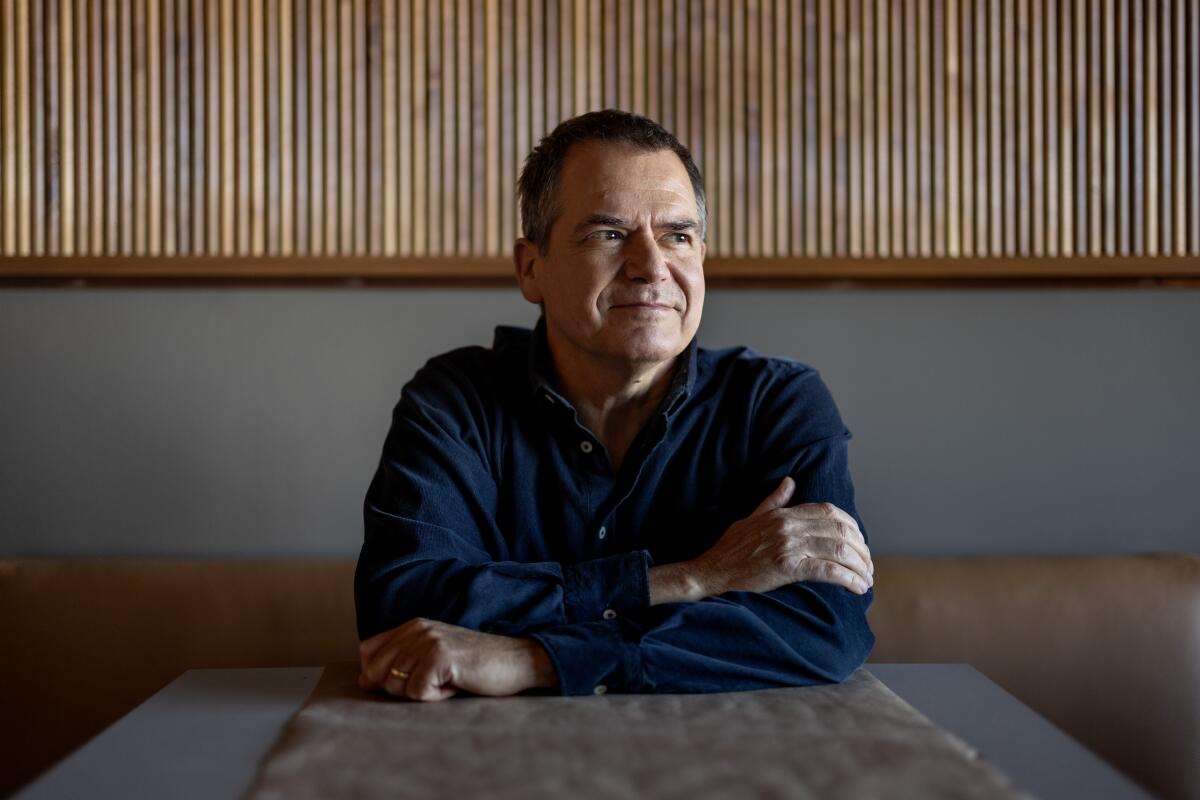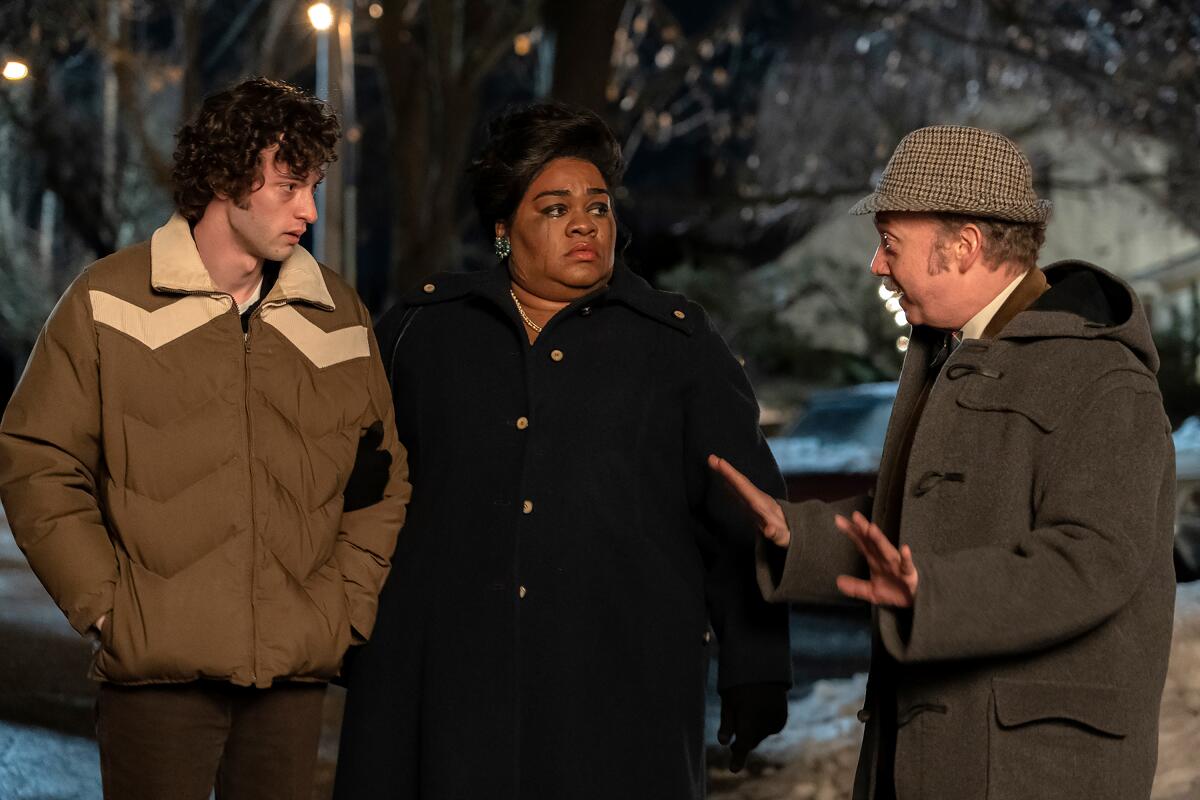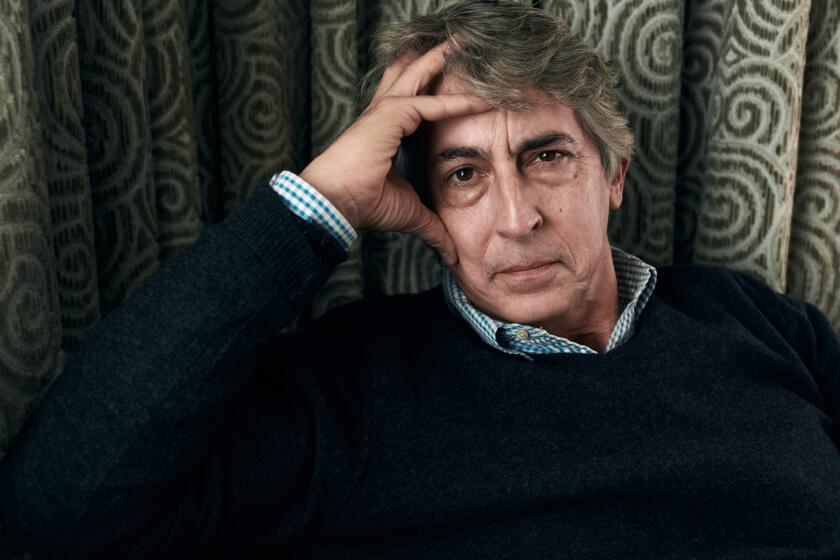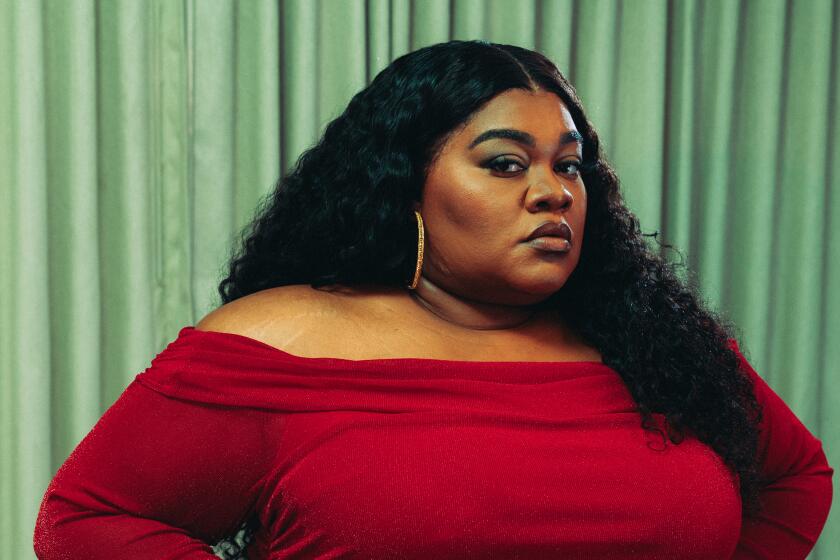Writer David Hemingson knew boarding schools, but the details of 1970s films? Not so much

- Share via
Writing “The Holdovers” was a deeply personal and life-changing experience, and it began where most things in L.A. begin — stuck in traffic on the 405.
Five years ago, I was running an hour-long dramedy that required me to fly back and forth between my writers’ room in Burbank and the set in Europe. One particularly humid August night, fresh off a 14-hour flight, I was crawling homeward on the freeway, dog-tired to the point of delirium, and my phone rang. “David Hemingson?” asked the voice on the other end. “Alexander Payne.”
It was a prank. It had to be. I have a friend who likes to call me pretending (convincingly) to be various world-renowned creative luminaries. On more than one occasion, I’ve fallen for it and stammered a breathless “hello” only to have my buddy reveal his true identity, call me an idiot and ask if I want to grab a beer (we have fun). “Alexander Payne,” I thought. “Nice one.” I was about to playfully tell the caller to go f— himself when I noticed the Omaha area code.
The film, says the director, is trying to take the idea of the period film “one step further”: not just to conjure up the mood of a bygone time, but to recapture a movie-making sensibility that it pioneered.
It actually was Alexander Payne. He’d read and loved a pilot I’d written about my formative years as a working-class kid attending a New England prep school, and he wanted to make a film set in that same world, focusing on a universally reviled professor and a scrum of students stranded over Christmas break, 1970. Not only would the film be set in that era, it would have the look and feel of a “lost picture” from back then. Would I be interested in writing a “ ‘70s movie” for him?
Of course I said yes! How do you say no to that? But as soon as I hung up, I felt the terror of that “yes” creep up my spine like a layer of frost. I was confident that I could conjure the granular details of prep school life, because I had lived it. But to accurately replicate the look and feel and rhythm of a “ ‘70s movie” for Alexander Payne? That was going to take some serious research. So began my two-year marathon through the work of Hal Ashby, Bob Rafelson, Robert Altman, Sidney Lumet, Francis Ford Coppola, George Roy Hill, Truffaut, Godard, Visconti — anyone and everyone who changed the face of movies during that seminal decade.
The screenplay came to me in stages. The first act broke easily, because it focuses mainly on the boys. But once I choppered most of them off campus, I had to wrestle with the heart of my story: the growing bond between the curmudgeonly teacher Paul Hunham (Paul Giamatti), the brilliant but troubled student Angus Tully (Dominic Sessa) and head cook Mary Lamb (Da’Vine Joy Randolph), who was grieving the loss of her heroic son. How was I going to drive these three very different, very damaged people together so they could form a family?

Finally, I found a rhythm: for every confidence shared between Paul, Angus and Mary, there’s a tiny betrayal or embarrassing incident that follows, leading to a confrontation that drives another personal revelation. I wanted Paul, Angus and Mary to get to know each other haltingly, reluctantly, because the truths that they are hiding from each other (and themselves) are like sleeping snakes, coiled around their hearts, and each is terrified of waking them.
At this point, I felt that, structurally, the movie was working, but it needed a jolt of painful honesty that had thus far eluded me. Then I thought of the quote by Arthur Miller: “The best work anybody ever writes is the work that is on the verge of embarrassing them, always.” So, I let the intimate details of my own past creep out of me and onto the page: the pain and drama of my parents’ divorce, my childhood feelings of panic and alienation, my awkward relationship with my brilliant but distant father, my mother’s tireless strength in the face of financial and emotional turmoil, and the uncle who saved me.
The fleshed out character of a grieving woman should lead the actor to better parts. More rewarding work. Respect.
Mining my own history — and realizing how it still shapes me — unlocked a central dynamic in the screenplay. Paul, Angus and Mary are each tethered to the past. Paul is haunted by a decades-old secret that, if revealed, would destroy everything he holds dear. Angus is hiding a truth about his father that is almost too terrifying to contemplate. And Mary carries the greatest burden of all: the immense grief of Curtis’ death, together with a simmering rage at the injustice of it all.
Each of them is “holding over” in life — stuck in time, carrying their pain like a stone they cannot put down. And it was my job to help them release their burdens and move on — together.
More to Read
From the Oscars to the Emmys.
Get the Envelope newsletter for exclusive awards season coverage, behind-the-scenes stories from the Envelope podcast and columnist Glenn Whipp’s must-read analysis.
You may occasionally receive promotional content from the Los Angeles Times.












